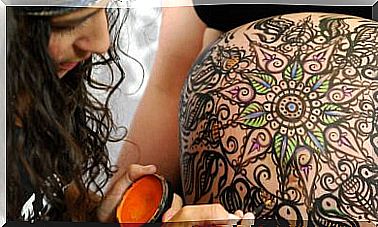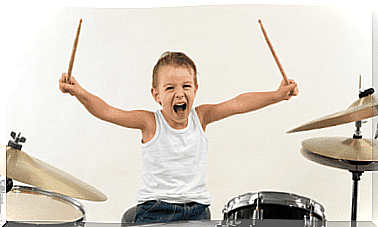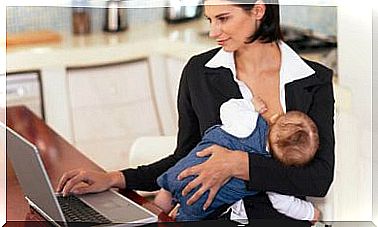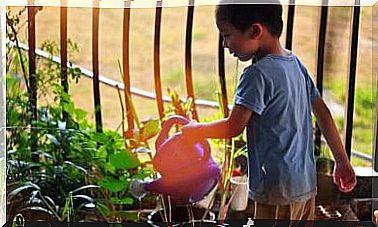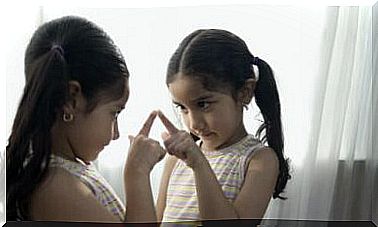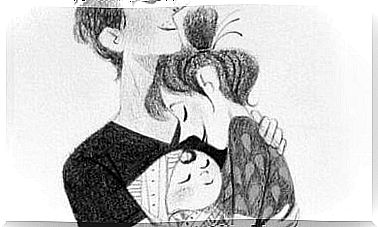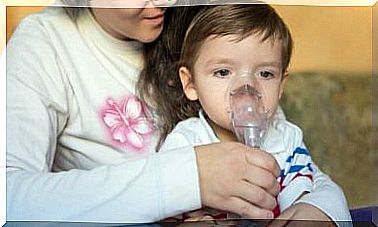Baby’s Fourth Month: Touches Sociability

More movement, laughter and interaction with people. Baby’s fourth month is a beautiful time for him for parents.
A stage of “independence” begins for the child. It is during the baby’s fourth month of life that he will learn to use his hands to pick up objects and connect even more with his surroundings. It’s a phase of many babbles and smiles!
After the baby’s first trimester, the muscles will be developed enough to allow more freedom with the body’s movements. Although your baby still can’t, you’ll find that he will try to stay in different positions like sitting, for example. He will be able to support himself in his arms when he is lying down and lift his head. He’ll also love moving and rolling around in bed.
Because of the new movements, great care must be taken not to leave the baby unattended on a high surface. He still doesn’t know the limits and dangers of some actions.
You will notice that your baby will be more attentive and will interact more with the environment around them. At this stage, he will love to play with toys, especially those that make noise. He will babble and wait for a response from the person with him. He will also put any object he finds in his mouth. So be careful. Don’t leave anything the baby can suffocate with within reach.
The baby’s sociability will take a leap. He will learn to laugh when he is in a good mood and with whom he feels good. You can cry when someone other than mom or dad comes near. Well, at least until the baby gets used to it.
Changes in the organism during the baby’s fourth month
- Weight gain slows down. The baby will gain about 150 grams a week.
- The baby won’t grow up so quickly either. Unlike what happened until the third month, this quarter it will grow between 6 and 7 centimeters.
- The baby will start to set his sleep schedule. During the night he will sleep for 8 to 10 hours. He will also nap during the day.
- Fewer evacuations. You will have fewer diapers to change. The baby will start to pee and poop less.
- Improved arm and leg coordination. The baby will be able to pick up objects, although he is not yet using tweezers with his fingers. He will start to want to stand on a firm surface.
- Greater sociability. He won’t like being alone. The baby will start making the first sounds and even a few syllables. And you’ll smile a lot more, even burst out laughing.

- Food does not change. Breast milk must continue to be the baby’s exclusive source of food. Solid foods are only incorporated from the sixth month.
- It will develop color vision. In addition, he will be able to distinguish the faces of his parents and those closest to him.
- The ear will also be more developed. He will begin to identify the voices of the people he spends more time with, especially his parents.
- He may show irritation. If your baby is irritable for any reason such as constipation, nausea, cramps, diarrhea or a cold, consult your pediatrician.
Tips to stimulate and educate in the fourth month of the baby
Baby’s fourth month is a great time to stimulate the senses. How to do this? First, you can offer toys that make noise or have lights that react to movement. In this way, the baby can begin to relate their actions to possible consequences.
During the baby’s fourth month of life, an important cognitive development takes place. Place the child in front of the mirror and repeat his name so he can make connections. Also, respond whenever she talks to you. This way you stimulate the ability to interact with others. Take the baby for a walk so he can see the world outside the home.
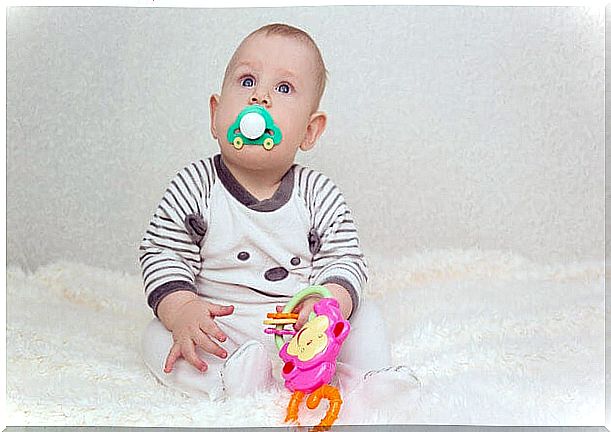
It’s important that you talk to him, sing or read. Change your tone of voice so that he learns to interpret mood swings.
A recommended game for the baby’s fourth month is to lay him on his back, and, facing him, offer a toy (preferably with a bright color). He’ll have to move forward to get the toy. This exercise has two key benefits:
- Improves abdominal flexibility and strength as the baby will stretch his arms upwards against gravity.
- Develops visual, tactile and auditory skills.
Other recommendations for baby’s fourth month
As we always say, follow the vaccination schedule and follow it to the letter.
Pacifier yes or no? It’s a hotly debated issue. The pacifier has its advantage as it reduces the baby’s anxiety, but it can also be harmful. We offer some tips for dealing with this situation in this article.
Remember: if you notice anything out of the ordinary or your baby is experiencing discomfort, don’t hesitate to consult a professional. And of course, enjoy this step. It will fly by!

